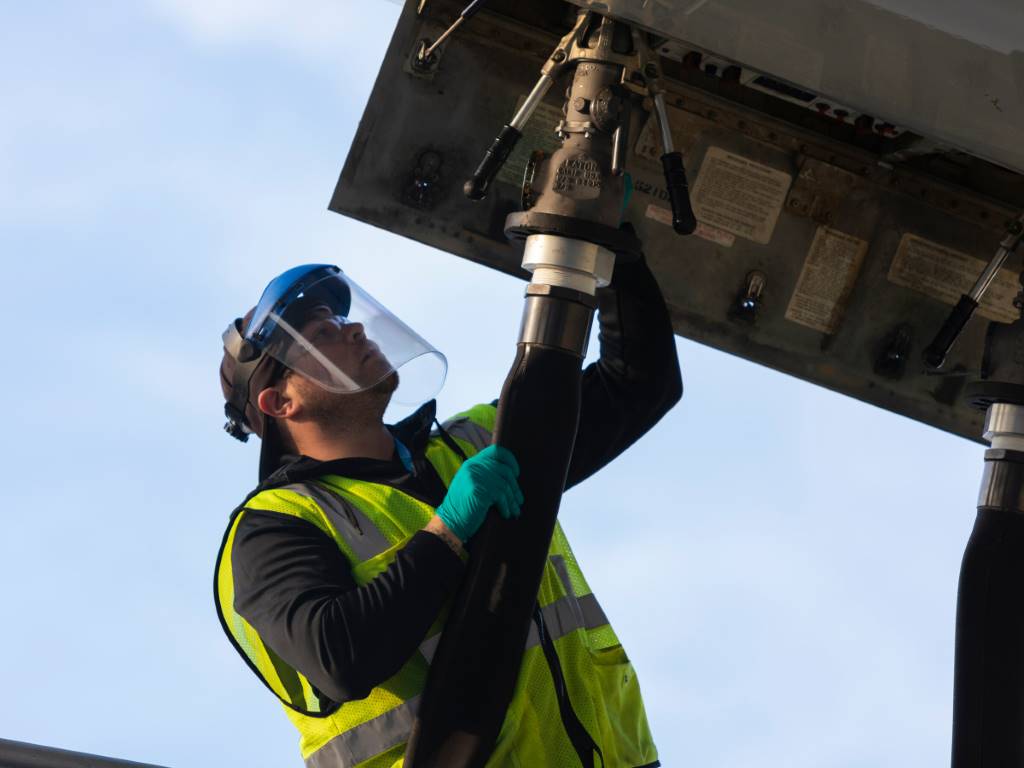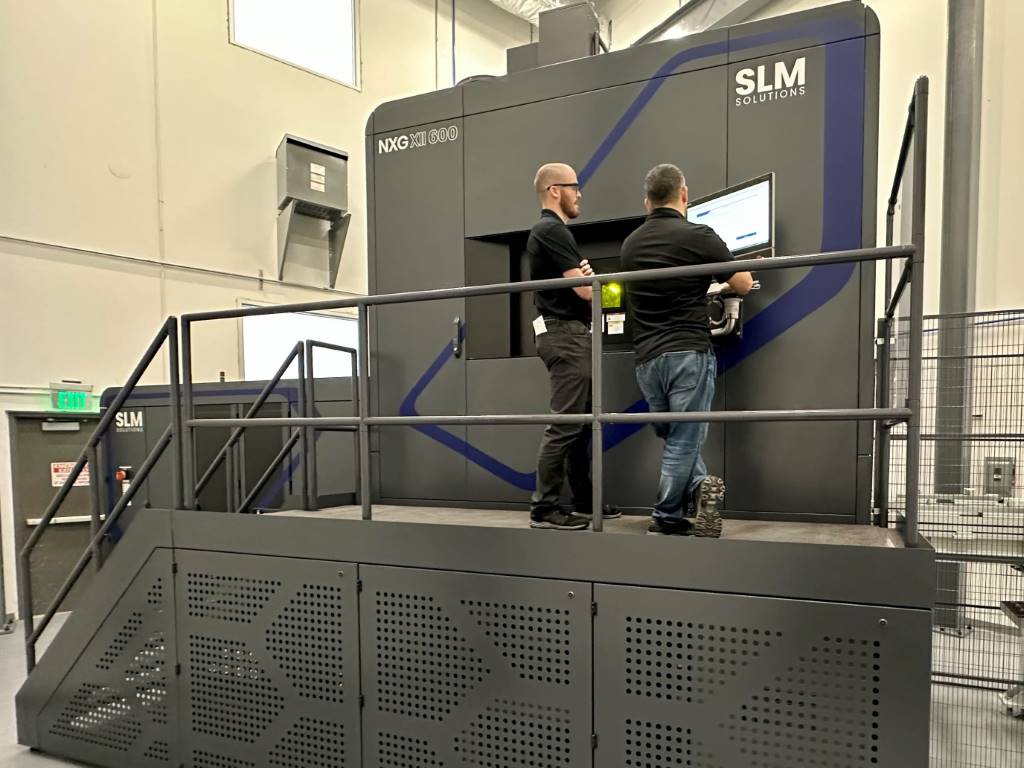Thinking outside the bin!
The Holy Grail of reducing batch sizes and re-supply times to a minimum is now within your grasp. The solution it seems comes from the innovative use of radio frequency identification (RFID) tags
used in conjunction with a twin bin kanban system.
Production in aerospace rarely flows smoothly unless it is organised into very discreet, small subassembly based cells. To satisfy today's aerospace customer demands for supply flexibility, innovative companies are now looking to offer novel delivery methods of parts to suit different production flow methodologies.
Chris Osborne, operations director of Specialist Technologies Aerospace Group states: “The unique challenges are to guarantee availability of parts, reduce cycle time in every step of the supply process and eliminate every potential cause of error. Therefore an improved supply process is vital.
“The introduction of FlagBin Live from Network Eidetics and Hurst Green Plastics' existing TwinBin kanban management system enables customers to benefit from our global sourcing/logistics capability and low cost operations. They effectively replace the need to have someone onsite to check for empty bins and we are able to operate a true supply chain tracked in realtime.”
Inventory reduction at the double
Hurst Green Plastics developed its patented TwinBin KanBan system in 1998 in response to the need of aerospace manufacturing companies to reduce the amount of aircraft general stocks of fasteners, rivets, bolts and other components used in the manufacture of both civil and military aircraft. FlagBin Live integrates low cost RFID tags into the existing TwinBin system to provide fully automated and realtime tracking of the bins.
There are a number of inherent problems associated with open bin systems. New stocks are placed on top of the existing stocks (first in, last out). There is no ‘trigger' at which point new stocks would be demanded, often leaving the decision to the person scanning the bins (who would be at fault if the bins ran out but not questioned if they overflowed, resulting in large amounts of stocks – often several months worth – being held). Cross contamination of stocks as well as stock being open to the factory environment (dust and debris) would be a problem.
There would also be no audit trail (traceability) of stock taken and so should there be an issue with a parts batch it is extremely difficult to determine to which aircraft it has been fitted.
TwinBin, as the name suggests, is a kanban parts bin that removes these problems. The TwinBin is split into two parts: an upper ‘reserve' chamber and a lower ‘live' chamber. The two chambers are divided by a moveable slide.
Initially both chambers are filled with stock - typically three to four weeks worth. When the lower ‘live' chamber becomes empty the operator pulls the dividing slide causing the stock in the upper ‘reserve' chamber to fall into the lower ‘live' chamber. It's then clear to the person scanning that the top section is empty and only then do they order new stock. Once the new stock has arrived the upper ‘reserve' chamber is refilled and the cycle is complete.
The benefit from operating TwinBin is that the decision to re-stock is taken away from the person scanning. In addition, typically there is a reduction of 75% in the amount of stock. The upper chamber can be identified as consignment stock and only charged when the batch goes live, there is no cross contamination or invasion of the factory environment such as dust and debris and improved traceability because batch sizes are small and identifiable within a period of usage. Traceability of parts issued and fitted is now possible within the usage time of the batch (three to four weeks or less).
With the introduction of FlagBin, the TwinBin has been further developed to make it easier and faster for the person scanning to see when the upper chamber is empty. This has been achieved by adding a red flag that automatically pops up when the slide has been pulled. Scanning times are now improved and anyone passing can see ‘at a glance' the volume of bins awaiting refill. Once scanned, the top of the flag is depressed to indicate that scanning has occurred and that the next batch is on order.
Integrating with RFID
For over ten years, Hurst Green Plastics has been chasing the Holy Grail of reducing batch sizes and re-supply times to an absolute minimum by adding electronics to its systems which would send a re-supply demand at the same time that the slide was pulled to release the batch in the upper chamber. In this way, a demand could be advised to the service provider, as well as any other chosen address.
Working in conjunction with Network Eidetics and the rapid improvement in pricing and adaptability of RFID technology means that this solution has finally become available with FlagBin Live.
FlagBin Live utilises two RFID tags for each FlagBin. The first tag is used to provide confidence that the RFID reader is able to read the bin. The second tag is used to indicate the position of the flag, and therefore whether the FlagBin requires restocking. When used with fixed position RFID readers it provides fully automated and realtime scanning of the status of the bins. In situations where it's not possible to use a fixed reader, a handheld RFID reader may be used to perform a ‘fast walk by' which reads the whole rack of bins in one pass, removing the need to scan individual bins.
FlagBin Live is available as a pay as you go hosted service or as an ‘on premise' install. Users throughout the supply chain can be given access to FlagBin Live so they can see status and usage reports; how long it has been since the last demand; if the demand is within expected usage times; if there has been a spike in demand; if the next batch is available with the supplier and whether it will reach the bin in the agreed time limit; if not it will alert the necessary personal so action can be taken to prevent a line stop; it will highlight if a part become dormant in use; and if the batch quantity be reduced even further.
The combination of RFID tags and a twin bin kanban system results in a truly efficient and traceable supply chain; reducing manual labour, keeping the amount of stock held to an absolute minimum and making line stoppages a thing of the past.
www.stag-aerospace.com
www.twinbin.com
www.flagbinlive.com













